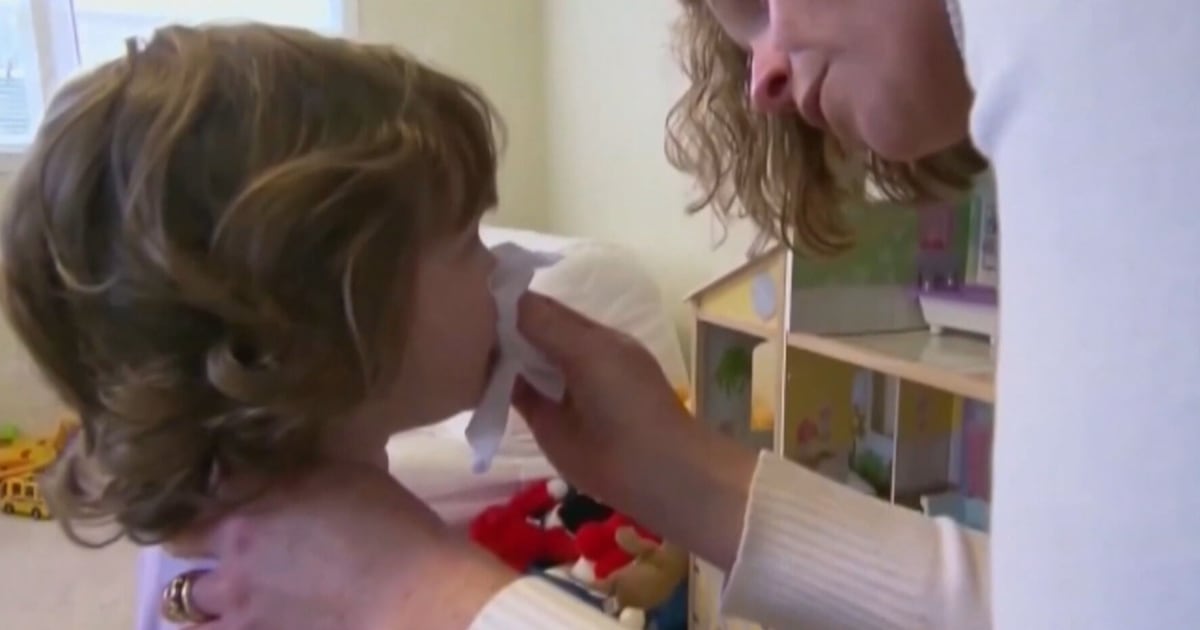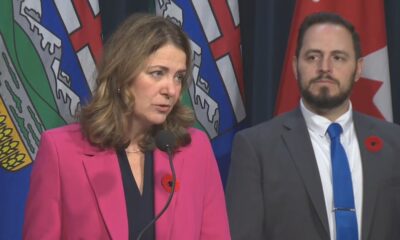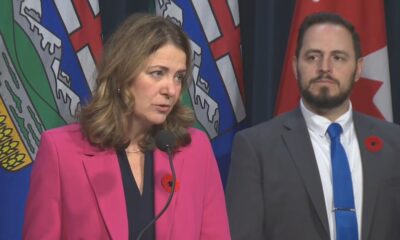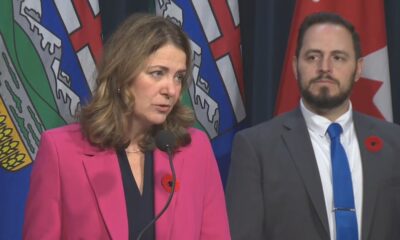Health
Calgary Mother Faces Vaccine Access Struggles Amid Flu Concerns

As flu season approaches, a Calgary mother is expressing frustration over the difficulties in accessing vaccines for her children. Jeanette Piddington, a mother of four, has encountered significant obstacles in securing flu shots this year. She describes the process as cumbersome and time-consuming, highlighting the need to navigate multiple locations and appointment systems.
“This year has been quite complicated. We’ve never run into the roadblocks that we have,” Piddington stated. Her two oldest children, aged six and eight, will receive their vaccinations at a local pharmacy. Meanwhile, she spent considerable time coordinating her four-year-old’s appointment, ultimately securing a slot at a community health clinic across the city. She voiced her disappointment, saying, “We are in a first-world country with universal health care. We should be able to book online, walk in within a week and get your children and yourself vaccinated.”
Piddington’s challenges reflect a broader concern as health experts warn of a particularly tough flu season ahead.
Concerns Over Flu Season Severity
Medical professionals anticipate a challenging influenza season in Canada, especially with the H3N2 strain dominating in the United Kingdom and Australia. These countries often serve as early indicators for trends expected in North America. Dr. James Dickinson, director of the Alberta Community Respiratory Viral Surveillance Program, cautioned that H3N2 is associated with more severe illness, and current vaccines may not be as effective against it.
“H3N2 can tend to be a little bit more severe; more importantly, our vaccines are not quite as good at dealing with that,” he explained. Dickinson expects a surge in cases, particularly after the return of students to school following the Alberta Teachers’ Association strike.
Alberta has reported its first death from influenza this season, with a woman in her 60s succumbing to the virus. Additionally, eight individuals have been admitted to intensive care units. Currently, the province has achieved about 10 percent coverage for influenza vaccinations, which experts emphasize is crucial for public health.
Craig Jenne, an infectious disease expert at the University of Calgary, reassured residents about the benefits of vaccination. “The good news is the vaccine continues to protect. It’s not as good as it could be, but it still works. It lowers the risk of severe disease,” he said. Jenne noted that vaccines in Canada offer protection against multiple strains, which remains vital even if there is a mismatch with H3N2.
Barriers to Vaccine Distribution
Dr. James Talbot, a former chief medical officer of health and current adjunct professor at the University of Alberta, highlighted additional barriers complicating the vaccine rollout for both influenza and COVID-19. He noted that Alberta hospitals are already exceeding capacity and warned that an influx of respiratory illnesses could further strain the healthcare system.
“We don’t have the capacity to absorb significant amounts of activity from influenza or COVID or both,” Talbot cautioned. He pointed to confusion surrounding vaccine accessibility, as pharmacies no longer offer COVID vaccines but continue to provide flu shots free of charge.
Talbot linked decreasing immunization rates to government shortcomings in supporting vaccination programs and a convoluted public health approach.
In response to concerns, CTV News received a statement from the Ministry of Primary and Preventative Health Services, which acknowledged the complexities of influenza trends. “Many factors influence influenza trends, including viral changes, circulation patterns, behavioral factors and global trends,” the ministry noted. They also indicated that it is premature to predict the severity of the influenza season or the overall impact of respiratory viruses on the province’s healthcare system.
The ministry emphasized that Albertans aged six months and older can receive a free influenza vaccine at various public health clinics, select physician clinics, and pharmacies for those five years and older. They also provided guidance on preventative measures, including staying home when sick and practicing good hygiene.
In an additional statement, the Ministry of Hospital and Surgical Health Services outlined efforts to prepare Alberta’s hospitals for the upcoming respiratory virus season. The government has allocated a total of 336 hospital beds specifically for this purpose, with plans to open surge beds and increase virtual hospital capacity as needed.
These measures reflect a commitment to managing the anticipated rise in demand for healthcare services and ensuring timely care for Albertans during this critical period.
-

 World4 months ago
World4 months agoScientists Unearth Ancient Antarctic Ice to Unlock Climate Secrets
-

 Politics5 days ago
Politics5 days agoSecwepemc First Nation Seeks Aboriginal Title Over Kamloops Area
-

 Entertainment4 months ago
Entertainment4 months agoTrump and McCormick to Announce $70 Billion Energy Investments
-

 Lifestyle4 months ago
Lifestyle4 months agoTransLink Launches Food Truck Program to Boost Revenue in Vancouver
-

 Science4 months ago
Science4 months agoFour Astronauts Return to Earth After International Space Station Mission
-

 Technology2 months ago
Technology2 months agoApple Notes Enhances Functionality with Markdown Support in macOS 26
-

 Top Stories1 month ago
Top Stories1 month agoUrgent Update: Fatal Crash on Highway 99 Claims Life of Pitt Meadows Man
-

 Sports4 months ago
Sports4 months agoSearch Underway for Missing Hunter Amid Hokkaido Bear Emergency
-

 Politics3 months ago
Politics3 months agoUkrainian Tennis Star Elina Svitolina Faces Death Threats Online
-

 Politics4 months ago
Politics4 months agoCarney Engages First Nations Leaders at Development Law Summit
-

 Technology4 months ago
Technology4 months agoFrosthaven Launches Early Access on July 31, 2025
-

 Top Stories3 weeks ago
Top Stories3 weeks agoFamily Remembers Beverley Rowbotham 25 Years After Murder




















